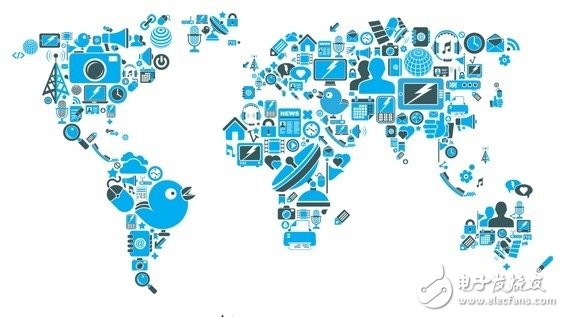Almost no one would ask this question: "Are you online today?", because when you take out your mobile phone and send a WeChat, you are already online. The mobilization of the Internet makes it ubiquitous and tries to connect everything, which is the concept of the Internet of Things. Small things in traditional life, home appliances, now you can access the Internet: TV, light bulbs, washing machines, air conditioners, water bottles, door locks, etc., as long as you want, you can design a "smart home" based on the Internet of Things. This emerging field has also become a new target for manufacturers. But is the Internet of Things already ubiquitous? not yet.
At the M2M EvoluTIon conference held in Las Vegas, USA, many manufacturers and analysts have not shunned that the Internet of Things is still far from real life, in part because the Internet is not yet popular in every corner of the world. Another reason is that the deployment of the Internet of Things is still too complicated.
The Cisco report shows that the Internet of Things is expected to generate a huge market worth $14.4 trillion by 2022; but some opponents point out that the term "Internet of Things" is not accurate. So, what obstacles exist in the popularity of the Internet of Things?

One of the application forms of the Internet of Things was to "connect the city." A wide variety of sensors and cameras are everywhere, tracking people's actions and generating big data to manage the city more efficiently. But the current obstacle is: the need to get a real government project to start, and prove that this theory is feasible.
Obviously, not everyone likes to be monitored and provided by IoT devices, which requires more complete legislation and consultation to be possible. Secondly, the software and hardware stability of the Internet of Things has been questioned. Jokes and accidents caused by mechanical automation have become commonplace. IoT devices need more reliable assessments before they can be applied to urban infrastructure.
Analysts also pointed out that another problem with the Internet of Things is the lack of uniform or relatively uniform standards. Unification is not a monopoly. For example, smartphone systems, although with iOS, Android, Windows Phone, BlackBerry and other standards, as well as TIzen, Firefox and other emerging brands, but the pattern is relatively clear. IoT devices are almost all of their own, 100 products have 100 standards, and do not expect relative reunification in the short term.
Of course, this year, we saw the addition of giants such as Apple and Google. Their advantage lies in their own mobile platforms with high coverage. Mobile devices are currently at least a necessary component of most home Internet of Things devices, perhaps after several years. The development and competition will gradually form a relatively unified platform and affect the application of the Internet of Things in the field of commerce and public construction.
But for now, the Internet of Things is clearly not everywhere, and it is difficult to achieve it soon.
Titanium Alloy Tube,Disposable Titanium Alloy Tube For Laboratory,Medical Titanium Alloy Tube,High Precision Titanium Alloy Tube
ShenZhen Haofa Metal Precision Parts Technology Co., Ltd. , http://www.haofametals.com
